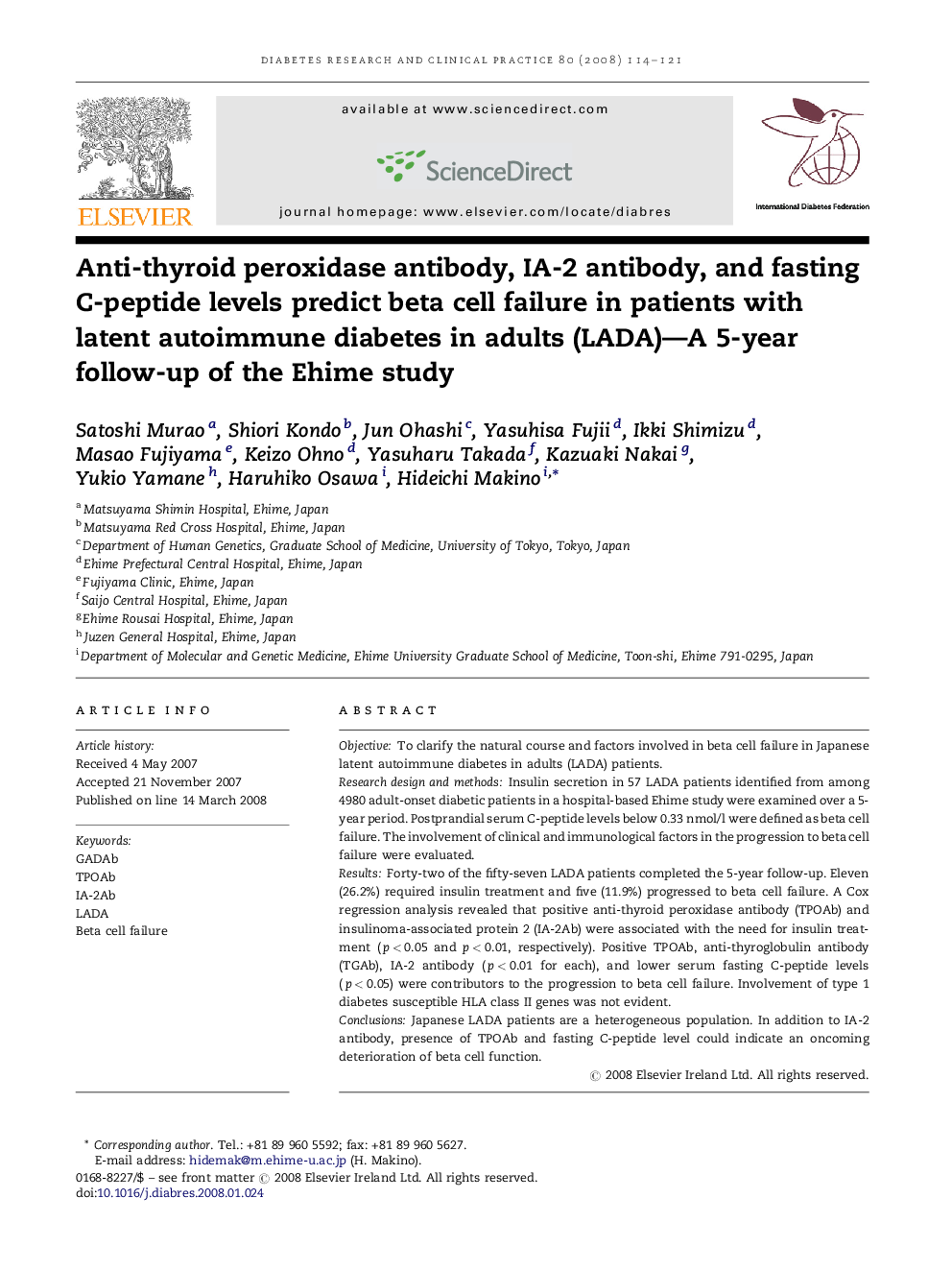| Article ID | Journal | Published Year | Pages | File Type |
|---|---|---|---|---|
| 2798319 | Diabetes Research and Clinical Practice | 2008 | 8 Pages |
ObjectiveTo clarify the natural course and factors involved in beta cell failure in Japanese latent autoimmune diabetes in adults (LADA) patients.Research design and methodsInsulin secretion in 57 LADA patients identified from among 4980 adult-onset diabetic patients in a hospital-based Ehime study were examined over a 5-year period. Postprandial serum C-peptide levels below 0.33 nmol/l were defined as beta cell failure. The involvement of clinical and immunological factors in the progression to beta cell failure were evaluated.ResultsForty-two of the fifty-seven LADA patients completed the 5-year follow-up. Eleven (26.2%) required insulin treatment and five (11.9%) progressed to beta cell failure. A Cox regression analysis revealed that positive anti-thyroid peroxidase antibody (TPOAb) and insulinoma-associated protein 2 (IA-2Ab) were associated with the need for insulin treatment (p < 0.05 and p < 0.01, respectively). Positive TPOAb, anti-thyroglobulin antibody (TGAb), IA-2 antibody (p < 0.01 for each), and lower serum fasting C-peptide levels (p < 0.05) were contributors to the progression to beta cell failure. Involvement of type 1 diabetes susceptible HLA class II genes was not evident.ConclusionsJapanese LADA patients are a heterogeneous population. In addition to IA-2 antibody, presence of TPOAb and fasting C-peptide level could indicate an oncoming deterioration of beta cell function.
